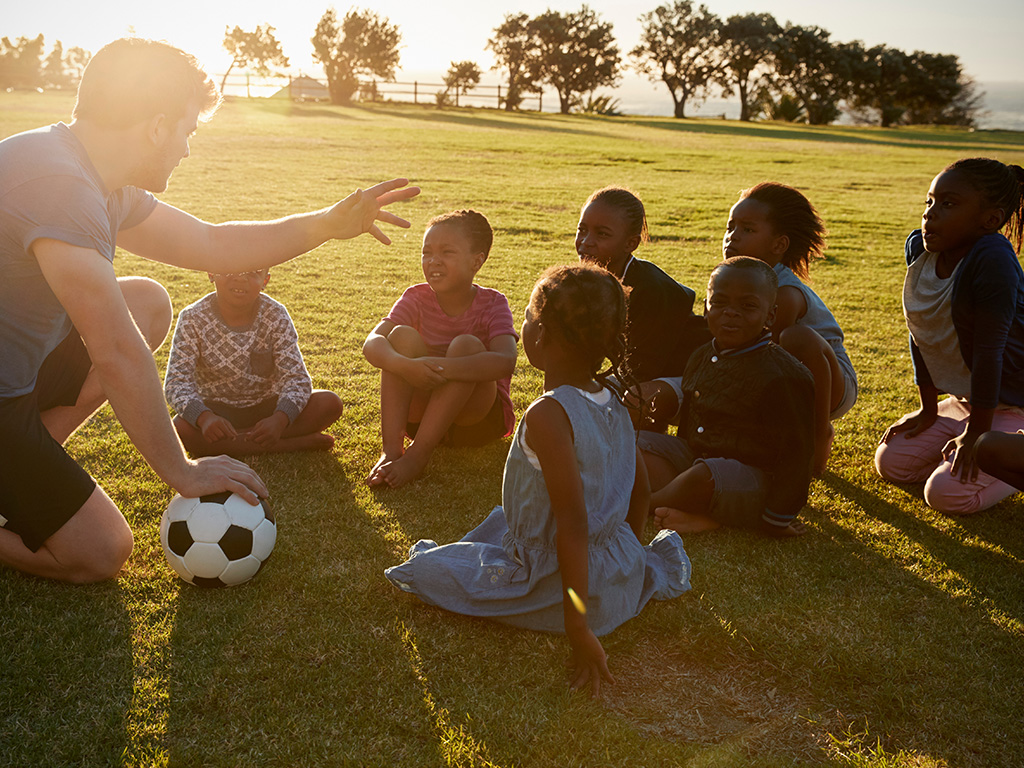Educating Adults & Children
Experts agree that if children are comfortable talking openly with their parents, they are more outwardly confident and less likely to become victims of sexual abuse. They are also more likely to disclose at the first sign of an abusive situation.
What Parents Should Know
Children need to be re-assured that it is always OK to tell a trusted adult when being touched in an uncomfortable way
Give kids confidence when discussing sexual abuse issues
Supporting their views and questions will strengthen their trust in you (making them more likely to disclose abuse)
Don’t discuss sex with your children only in terms of abuse, but also as a natural and healthy part of life

What Parents Should Know
Children need to be re-assured that it is always OK to tell a trusted adult when being touched in an uncomfortable way
Give kids confidence when discussing sexual abuse issues
Supporting their views and questions will strengthen their trust in you (making them more likely to disclose abuse)
Don’t discuss sex with your children only in terms of abuse but also as a natural and healthy part of life
What To Teach Kids
Personal boundaries so they know if their comfort zone is being violated
There are no secrets about touching
Talking openly to you about any subject
Their bodies are their own
It is okay to say “no” to a hug or contact that makes them uncomfortable
When To Talk
Car rides to sporting events or other extracurricular activities
Family meal times
During a nature walk
While getting a special treat
After reading a news story or watching a movie or TV show pertaining to child sexual abuse
To Protect Your Child, It’s Essential That You Recognize the Harsh Realities of Child Sexual Abuse
Sadly, most abuse is committed by individuals entrusted to be with your child. In order to keep him/her safe, everyone must be informed and aware of the threats facing your family — including your child. That’s why RAACE, with recommendations from the American Academy of Pediatrics, has provided the following age-appropriate conversation guide:
| Age | Recommended Conversation Topic(s) |
|---|---|
| 18 Months – 3 Years Old | Teach your child which body parts are private (parts covered by a bathing suit). Also, teach your child the proper names of these parts (breasts, vagina, penis). Know the adults and children that spend time with your child. Make surprise visits to your child’s caregiver. |
| 3 Years Old – 5 Years Old | Teach your child about private parts of the body. Children may touch their genitals and be curious about the genitals of others. Many sexual behaviors may be normal in this age group, but if a child asks an adult to perform a sexual act or becomes forceful in his sexual behaviors, call your pediatrician for advice. Also give simple answers. When children ask questions about sex or the genitals, give simple and understandable answers so they know these topics are not “off limits.” |
| 5 Years Old – 8 Years Old | Teach your child to respect the private parts of others and to expect others to do the same. Talk about whom the child can tell if someone makes him/her feel uncomfortable when he/she is away from home. Listen when your child tries to tell you something, especially when it seems hard to talk about it. Make sure your child knows it’s OK to tell you about anyone who makes them feel uncomfortable, no matter who that person may be. Ask what your child would do in certain situations and how to recognize danger. |
| 8 Years Old – 12 Years Old | Stress personal safety. Your child should be aware of places where sexual abuse could happen, such as video arcades, malls, locker rooms, and out-of-the-way places outdoors. Talk about peer pressure. Make safety plans with your child so he/she knows what to do if he is asked to use drugs or alcohol, smoke, touch someone sexually, steal, cheat, or bully. Teach your child about sexual abuse. And if your child’s school has a sexual abuse program, discuss what he/she has learned. |
| 12 Years Old – 18 Years Old | Set aside time each week to talk about the good, bad, and confusing experiences your child has encountered. |
Internet Safety
Children who surf the web and post personal information are at risk of being victimized. Potential abusers may try to establish relationships via the Internet, even posing as children themselves online, but it is less likely to be noticed by parents. Ninety percent (90%) of child abusers know the children they molest.4
Over time, they develop a trusting relationship with their victim. This same relationship building between child and abuser can occur online, but it is less likely to be noticed by parents. Talk to your children about maintaining their safety on the web. Protect them by monitoring their activity closely. Web technology evolves everyday providing potential abusers new opportunities to contact and build rapport with your child.
General Guidelines
Make sure a site is secure before giving personal information out
Ask your children to teach you about their online activity (this way they feel they are instructing, not being monitored)
Do not allow the purchase of anything online (especially using your credit card information)
Discourage the joining of mailing lists or subscribing to anything over the internet (especially if personal information is required)
Make sure anti-virus/fire wall programs are up to date and always running
Set time limits for online activity
Keep computers in a centralized location
Email and Instant Messenger Guidelines
Make sure you know your child’s user names and passwords
Make sure they use an IM service with the ability to warn or flag improper behavior (users are less likely to abuse privileges if it can be lost)
Warn your child not to send pictures of themselves to strangers
If your child wants to meet a friend they met online:
Talk with this friend’s parents beforehand
Make sure the meeting is in a public place
Go with your child
Warn them to never open emails, files, or links from someone they don’t know
Guidelines for Social Network Safety
If your child belongs to an online social network (like Facebook or Instagram) talk to them about:
What they post
Who they are ‘friends’ with
Limiting access to their profile
Ask to see their profile, but give notice (this allows time to delete content, insuring strangers see only what is safe)
View terms of use on social network sites (they may be too young to have a profile hosted there)
Read what your child posts online (you have the right, it’s public and not an invasion of privacy)
Warn your child to never respond to an unfamiliar message, email or posting
Help your child choose a non-age, gender, or name specific screen name
Warn your child to never post or share personal information: (full name, address, phone number, school, class schedule)
Suggested Readings
Below you’ll find a few books that can help you learn more about child sexual abuse, prevention and healing. For a full list of our recommended books, please visit our suggested readings page.
